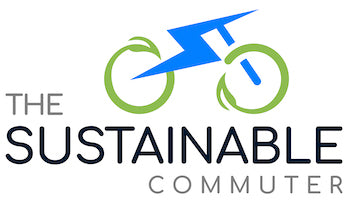
Electric Vehicles Eligible for Tax Credits
Share
Electric Vehicles and Tax Credits: A Comprehensive Guide
Electric vehicles (EVs) have gained significant popularity in recent years due to their environmental benefits and potential cost savings. In addition to reducing greenhouse gas emissions, EVs offer lower operating costs and a more sustainable transportation option. To encourage the adoption of EVs, the federal government offers tax credits to incentivize consumers to purchase these vehicles. In this blog post, we will explore the various tax credits available for electric vehicles and highlight how you can take advantage of these incentives.
Understanding Federal Tax Credits for Electric Vehicles
The federal government provides tax credits for the purchase of qualified electric vehicles. These tax credits are designed to offset the higher initial cost of EVs and make them more affordable for consumers. To be eligible for the federal tax credit, the vehicle must meet certain criteria. These criteria include the following:
- Battery Capacity: The electric vehicle must have a battery capacity of at least 4 kilowatt-hours (kWh) and be capable of being recharged from an external source of electricity.
- Manufacturer Certification: The vehicle must be certified by the manufacturer as meeting specific requirements, including the battery capacity and the ability to recharge from an external source.
The amount of the federal tax credit depends on the battery capacity of the vehicle. Currently, the federal tax credit ranges from $2,500 to $7,500. Vehicles with larger battery capacities are eligible for a higher tax credit. However, it's important to note that the tax credit phases out once an automaker has sold 200,000 eligible electric vehicles. Therefore, it's important to check the current availability of the tax credit before making a purchase.
State-Specific Electric Vehicle Incentives
In addition to the federal tax credit, many states offer their own incentives for electric vehicle owners. These incentives can include tax credits, rebates, and other financial incentives. The availability and amount of these incentives vary by state, so it's important to research the incentives offered in your state.
Some states also offer additional incentives, such as access to high-occupancy vehicle (HOV) lanes, free or discounted parking, and reduced registration fees. These incentives can further enhance the benefits of owning an electric vehicle.
To find out about the specific incentives available in your state, you can visit the U.S. Department of Energy's Alternative Fuels Data Center website. They provide a comprehensive list of incentives by state, making it easy to find the programs that apply to you.
Electric Vehicle Charging Infrastructure
One of the challenges of owning an electric vehicle is ensuring access to a reliable and convenient charging infrastructure. Fortunately, the availability of charging stations has been increasing rapidly in recent years. There are now thousands of public charging stations across the country, making it easier than ever to charge your electric vehicle on the go.
There are three main types of charging stations for electric vehicles:
- Level 1 Charging: This type of charging uses a standard 120-volt outlet and is the slowest method of charging. It typically adds around 4 to 5 miles of range per hour of charging.
- Level 2 Charging: This type of charging uses a 240-volt outlet, similar to what is used for electric dryers or electric vehicle charging stations. Level 2 charging is faster than Level 1 charging and can add around 25 to 30 miles of range per hour of charging.
- DC Fast Charging: This type of charging is the fastest option and can add up to 80% of the vehicle's range in as little as 30 minutes. DC fast charging stations are typically found along major highways and in urban areas.
Charging infrastructure is essential for the widespread adoption of electric vehicles. It allows EV owners to charge their vehicles conveniently and reliably, reducing range anxiety and making EV ownership more practical.
GreenPower Charging Network's Sustainable Mobility Program
As a leading sustainable energy company, GreenPower Charging Network is dedicated to promoting the widespread adoption of electric vehicles (EVs). In line with our commitment, we are proud to introduce our Sustainable Mobility Program, a comprehensive initiative that supports customers in transitioning to EVs while fostering a greener future.
The GreenPower Charging Network Sustainable Mobility Program offers a unique and enticing electric vehicle tax credit to incentivize customers to embrace cleaner transportation options. By participating in this program, customers not only benefit from federal and state tax credits but also gain access to an additional financial incentive provided by GreenPower Charging Network.
To qualify for the Sustainable Mobility Program, customers must purchase a qualifying electric vehicle and enroll in the program. Once enrolled, customers become eligible to receive a generous tax credit of up to $3,000, contingent upon the battery capacity of the chosen EV model. This supplementary tax credit significantly offsets the purchase cost of an electric vehicle, making it an even more financially appealing and sustainable choice.
Beyond the monetary advantages, enrolling in GreenPower Charging Network's Sustainable Mobility Program offers a range of benefits. Program participants gain exclusive access to a network of charging stations with discounted charging rates. This ensures that owning an electric vehicle is not only environmentally friendly but also cost-effective and convenient, as customers can easily recharge their vehicles at accessible locations.
Conclusion
Electric vehicles offer numerous benefits, including reduced greenhouse gas emissions, lower operating costs, and a more sustainable transportation option. To encourage the adoption of electric vehicles, the federal government offers tax credits, and many states provide their own incentives. Additionally, sustainable companies like are offering their own electric vehicle tax credit programs to further incentivize the purchase of EVs.
If you are considering purchasing an electric vehicle, it's important to research the available tax credits and incentives to maximize your cost savings. By taking advantage of these incentives, you can make owning an electric vehicle even more affordable and contribute to a more sustainable future.
We encourage you to explore the benefits of electric vehicles and the tax credits available. Visit the U.S. Department of Energy's Alternative Fuels Data Center website to learn about the incentives offered in your state. And don't forget to check out 's electric vehicle tax credit program for additional financial incentives and charging benefits. Together, we can drive towards a greener and more sustainable future.
